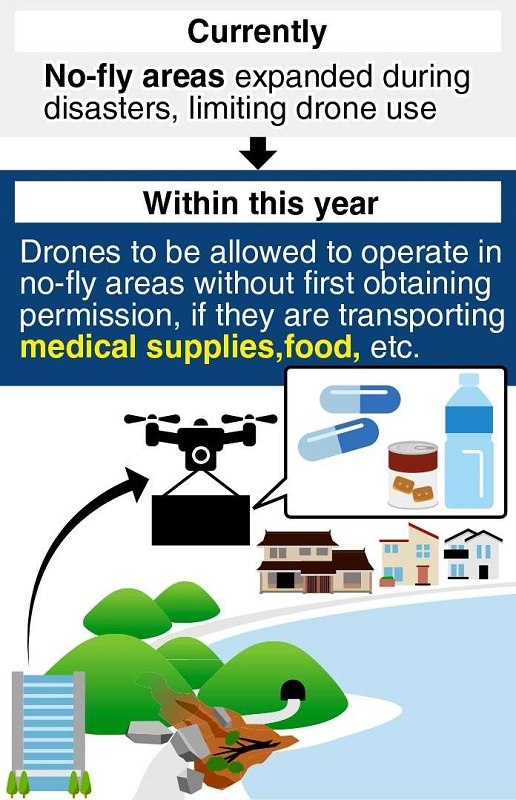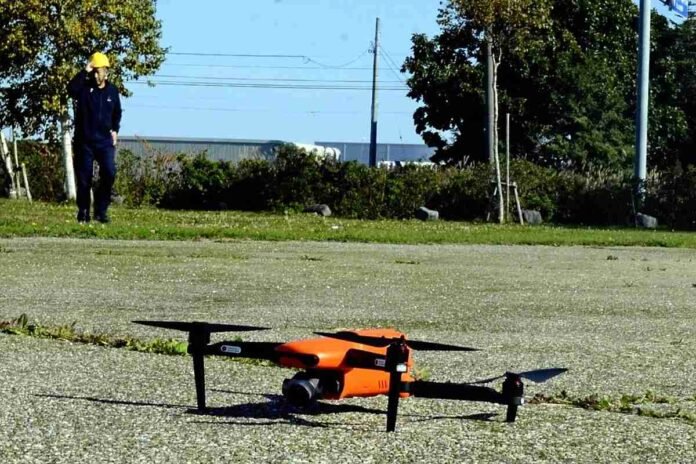In October, training will be given in Hokkaido for the coordination between a manned helicopter and a drone.
7:00 JST, May 30, 2024
The government is making final arrangements to expand the use of drones in times of disaster, hoping to enable them to transport relief supplies in no-fly areas without the need for official permission.
The Council for the Promotion of Regulatory Reform is expected to include deregulatory measures to that effect in a draft to be prepared on Friday. The measures will then be included in the Law Reform Implementation Plan, which the cabinet will decide on in June.
In addition to standard no-fly zones, such as densely populated residential areas, the Civil Aviation Law expands the areas where drone flights are banned in the event of a disaster, so as not to hinder helicopters conducting search and rescue operations. Currently, permission from the Ministry of Land, Infrastructure, Transport and Tourism is required to use drones in no-fly areas, but such permission is not necessary when drone flights are requested by prefectural police or municipalities.
The Noto Peninsula earthquake on January 1 closed roads, preventing rescuers and supplies from reaching isolated communities. Although drones were used to assess damage through aerial photography, their role in transporting relief supplies was limited.

Possible use of drones in disasters
Based on requests from affected areas, the draft calls on the Ministry of Transport to clarify that drones can be deployed without authorization in no-fly zones when transporting medical supplies, food and other essential items. The design would encourage the use of drones to quickly deliver goods to disaster victims.
The draft will also include measures to support startups. It proposes to revise the criteria for certifying articles of association – a procedure required to establish stock companies – so that the fee for certifying startups will be approximately halved. The current minimum amount is ¥30,000.
The draft also proposed the simplification, within this financial year, of the process from the submission of the draft articles of association to the official registration of a company, which completes its incorporation. The changes would allow this process to be completed within 72 hours, or as little as 24 hours if the Digital Agency’s “one-stop service for integration” system were used.
As for the ride-sharing services that launched in April, the draft will propose improvements to meet the high demand expected during times of rainy weather and major events. However, it has not yet been decided whether the service providers, which are currently limited to taxi companies, will be expanded.



